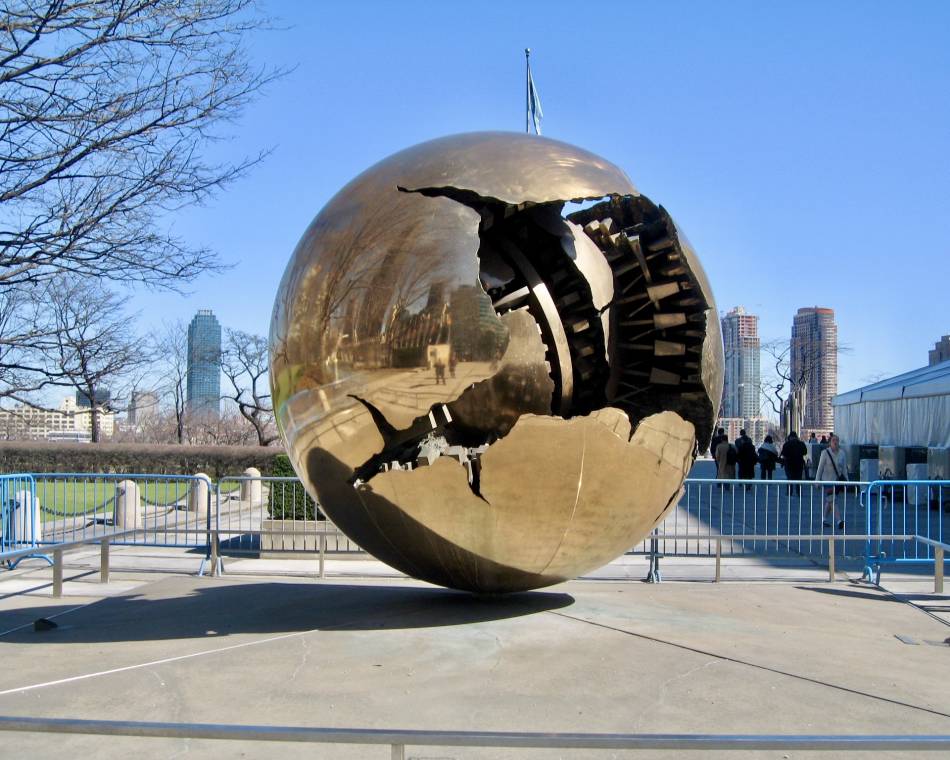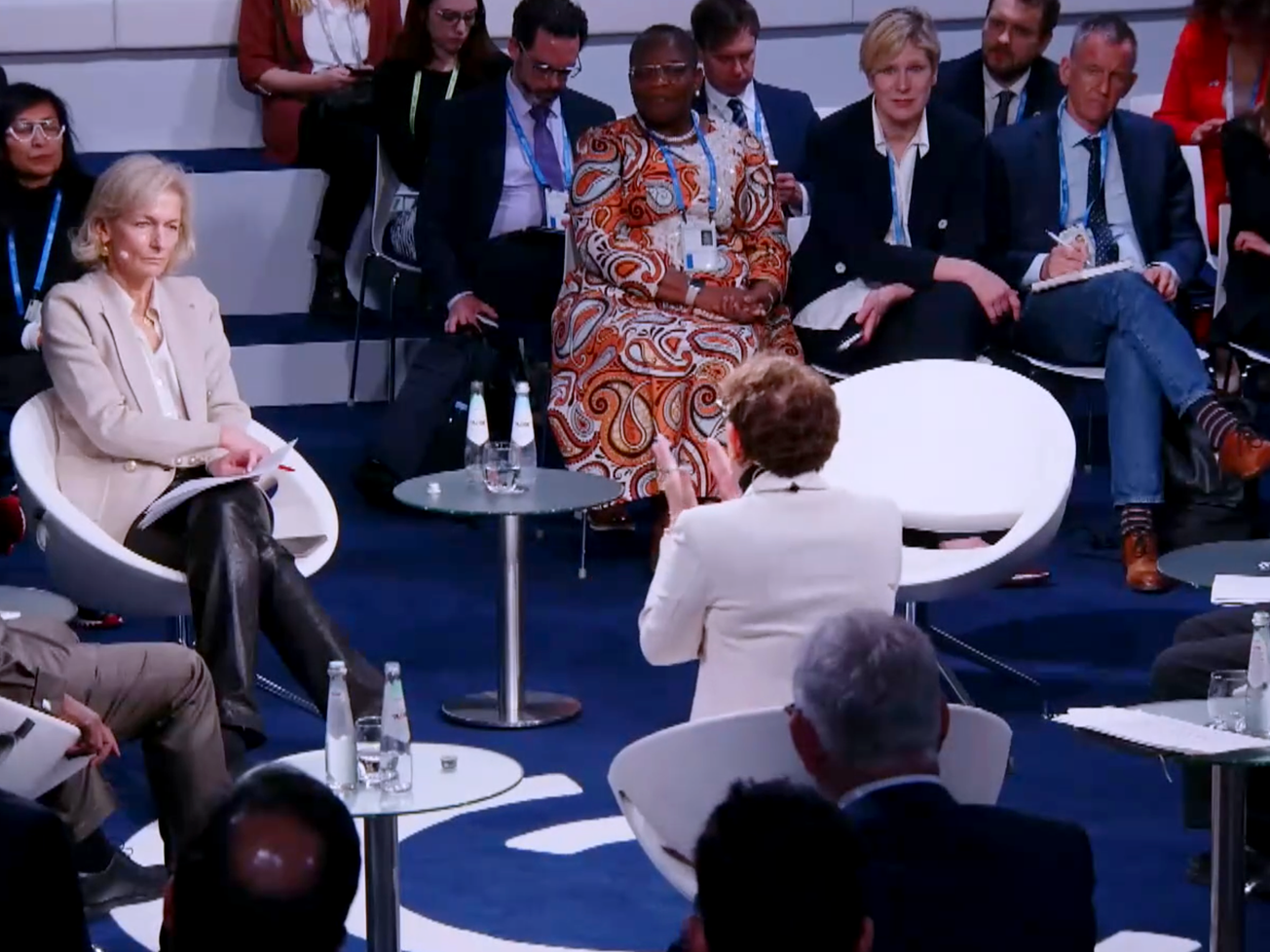UNITED NATIONS (AN) — Confronting a world in "great peril," world leaders gathering at the U.N. General Assembly this week are being asked to set aside their nations' grievances and collectively take on a war in Europe, a global food crisis and countless more challenges.
Few expect any real breakthroughs, but the 193-nation assembly's annual speeches and meetings at least present an opportunity for global cooperation.
Russia’s invasion of Ukraine, the pandemic and other health emergencies, floods, droughts and fire, global food shortages and imminent famine in the Horn of Africa, inflation and economic instability, and the need for greater commitment at a looming U.N. climate summit are among the top priorities.
"The General Assembly is meeting at a time of great peril. Geostrategic divides are the widest they have been since at least the Cold War," U.N. Secretary-General António Guterres told reporters last week.
"They are paralyzing the global response to the dramatic challenges we face. Our world is blighted by war, battered by climate chaos, scarred by hate, and shamed by poverty, hunger, and inequality," he said. "Conflicts and unrest continue to rage. The war in Ukraine is devastating a country — and dragging down the global economy."
For the first time since the pandemic began in 2020, the asssembly will be held in person at U.N. headquarters in midtown Manhattan overlooking the East River. Leaders must give in-person speeches, but an exception was granted to Ukraine's President Volodymyr Zelenskyy so he can send a pre-recorded video statement.
The 77th session of the assembly will be overeen by veteran Hungarian diplomat Csaba Kőrösi, who was elected the assembly president. Kőrösi, who most recently served as head of environmental sustainability in the Hungarian president's office, has a full agenda to oversee.
"As we begin our 77th session, we do so in a world of widening geopolitical divides and protracted uncertainty. While more manageable, the pandemic continues to wreak havoc across the globe," Kőrösi told the assembly at its opening.
"Acute food insecurity, soaring energy prices and global supply chain disruptions mean even less food for those already short of that while record inflation threatens to rock our societies," he said. "Conflicts are creating humanitarian upheavals not seen since the Second World War and testing the strength of our institutions. The conflict in Ukraine has been a turning point for all of us."
To the world's young people I say:
— António Guterres (@antonioguterres) September 16, 2022
You are the strongest voices calling for change & for world leaders to wage peace instead of war.
As global leaders come to the #UNGA, I pledge to support young people to push them to work together for a more peaceful & tolerant world. pic.twitter.com/TvXTsFXfUm
No U.S.-Russia meeting planned
An education summit on Monday will be followed by the high-level section with speeches from world leaders starting on Tuesday. The assembly runs until early next week.
"The months ahead will continue testing the strength and durability of the multilateral system this organization represents," Guterres told the assembly at its opening last week. "And the world is looking to the members of the assembly to use all of the tools at your disposal to negotiate and forge consensus and solutions."
There are no plans for any U.S. officials to meet on the sidelines of the assembly with their Russian counterparts about its invasion of Ukraine on Feb. 24, U.S. Ambassador to the U.N. Linda Thomas-Greenfield told a press briefing on Friday.
"We will be having meetings with the Ukrainians. There are no plans at this time to have meetings with the Russians," she said. "They have not indicated that they have an interest in diplomacy. What they are interested in is continuing to wage this unprovoked war on Ukraine, and the Ukrainians are working diligently to defend themselves."
Thomas-Greenfield said the United Nations faces "a crisis of confidence" brought about by Russia’s unprovoked war in Ukraine, and the top U.S. priorities for the assembly will be food shortages, health crises and upholding the Charter of the United Nations, a landmark treaty signed 77 years ago in San Francisco. When it took four months later on October 24, 1945, the world's foremost intergovernmental organization formally came into existence.
"This war tests the fundamental principles the U.N. was founded on, but our response to Russia’s flagrant violations cannot be to abandon the founding principles of this organization that we believe so strongly in. Instead, we have to double down," she said. "We must double down on our commitment to a peaceful world and hold even closer our deeply-held principles of sovereignty, territorial integrity, peace, and security."
The Charter calls on nations to make every effort to save succeeding generations from never again experiencing "the scourge of war" that engulfed the world twice in the 20th century, and to reaffirm faith in "fundamental human rights" while creating the conditions for the rule of law, social progress and freedom.
"And that’s why next week is so critical," said Thomas-Greenfield. "We believe this is a moment to defend the United Nations and to demonstrate to the world that it can still take the world’s most pressing global challenges on."







